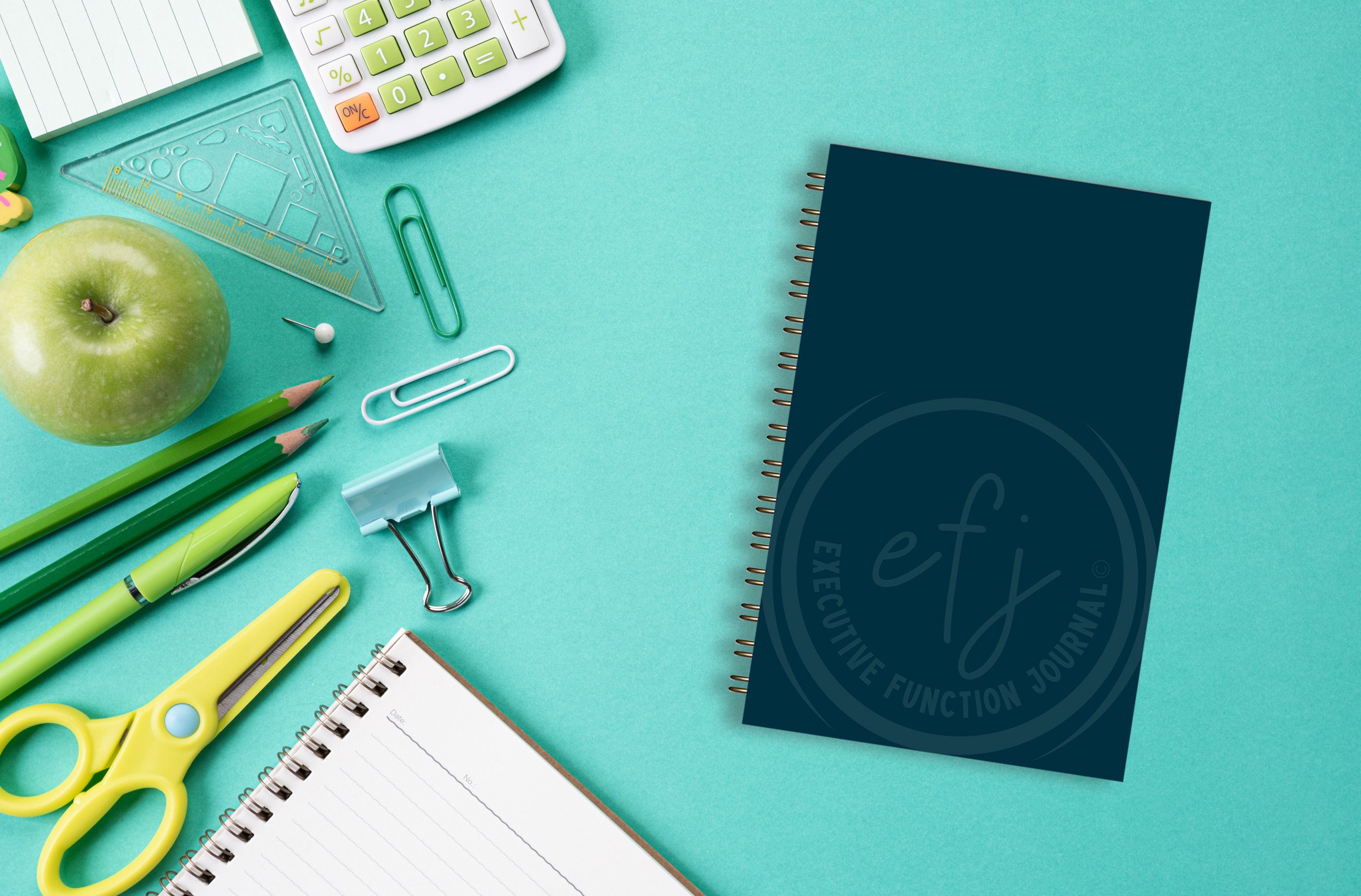
A 90-day journal that targets and strengthens core executive functions
Building self-awareness so you can operate independently and succeed confidently.
Is the Executive Function Journal right for your child?
The Executive Function Journal is designed for children, adolescents, and young adults with executive function deficits, with or without ADHD. It is ADHD-friendly, dysgraphia friendly, and intended for people with or without formally documented executive function deficits.
-
Executive functions are a constellation of cognitive skills that allow us to operate independently. They include the following:
attention
organization
impulse control
task initiation
planning
time management
reflection
working memory
goal setting
People with ADHD often need more support developing their executive functions than people without ADHD.
The good news is that, like any other skill, executive functions can be strengthened through targeted practice, like using the Executive Function Journal.
Is your child:
✓ Overwhelmed
✓ Lacking confidence
✓ Unmotivated
✓ Not self-aware
✓ Disorganized
✓ Forgetful
✓ Poor at managing time
If so, the Executive Function Journal is for them.

We know the pain is real.
Both yours and theirs.
Did you know the above pain points are often due to executive function (EF) deficits?
The Executive Function Journal targets and builds multiple core executive functions.
Why does this matter?
Strong executive functions lead to:
✓ Impulse control
✓ Flexible thinking
✓ Motivation
✓ Task endurance
✓ Organization
✓ Self-awareness
✓ Self-management
✓ Smoother daily operations
Katie Azevedo, M.Ed. is Featured In …
✓ Over 3,000 one-on-one students
✓ Over 18 years of teaching experience
✓ Master’s Degree in Special Education
What Others Are Saying

How it Works
1. Buy the Journal
Purchase the Executive Function Journal and Companion Guide together for full support and optimal improvement.
2. Do the Daily Pages
Just one page a day. 7 minutes max. The power of the Executive Function Journal is in the routine.
3. Build your EF Skills
Each daily component and writing prompt targets multiple specific executive functions.
4. Repeat the Cycle
Developing EF skills requires repetition. Journals are intended for consecutive usage. Finish one; start another.
The Details
You want your child to succeed. But, for that to happen, they need certain types of skills to operate independently.
The problem? Your child may have executive function deficits, which makes them feel dependent, overwhelmed, incapable, and disorganized.
Every child deserves to function independently and confidently, but I also understand the daily struggle of managing basic routines and completing tasks.
That's why I created the Executive Function Journal with over 18 years of educational experience, a Master's Degree in special education, and thousands of private clients.
How it works:
Buy the Executive Function Journal and Companion Guide.
Complete one daily page per day.
Strengthen your executive functions with consistent usage.
Repeat the cycle.
Get started with your first Executive Function Journal now so your child can stop feeling overwhelmed and dysregulated, and start functioning at their potential.
The ability to operate independently and succeed confidently is priceless. So are the skills required to do so.
Purchase The Executive Function Journal alone or with the Companion Guide (recommended).
Users will start a new Executive Function Journal every 90 days, but will only ever need one Companion Guide.
The Executive Function Journal is also available as a 4-pack for uninterrupted use throughout a full year. Each bundle offers a savings discount.
This is not just another journal. While the Executive Function Journal is “journal-like” in appearance, the daily pages are unique in their specific targeting of some of the most important skills your child will ever need.
The daily pages are designed to be accessible and brief (less than 6 minutes per day to complete).
The Companion Guide provides prompts, cues, sentence starters, and alternative questions for all 90 prompts, to facilitate journal usage and reduce barriers. It also provides accommodations and instructions for helping a child with various learning disabilities use the journal successfully.


















